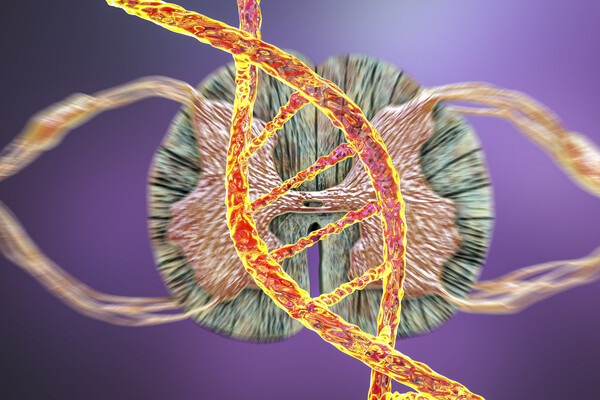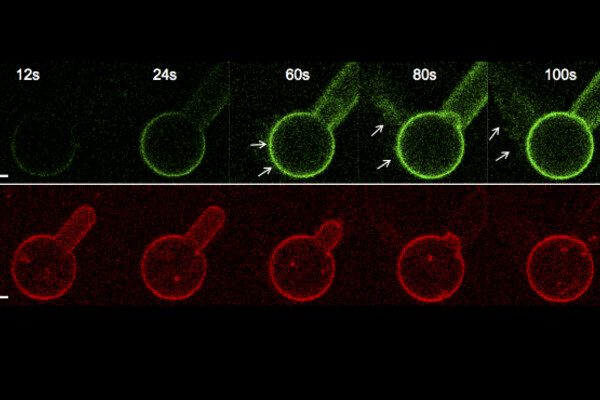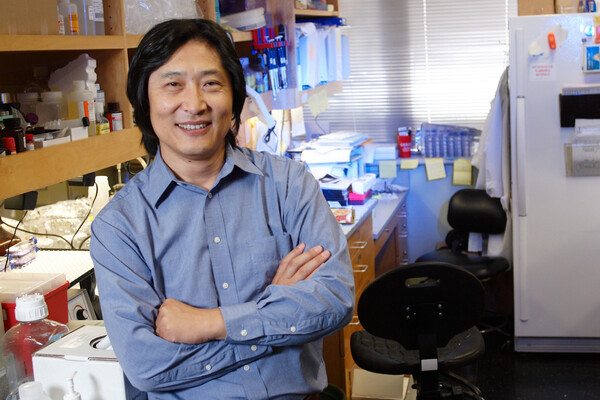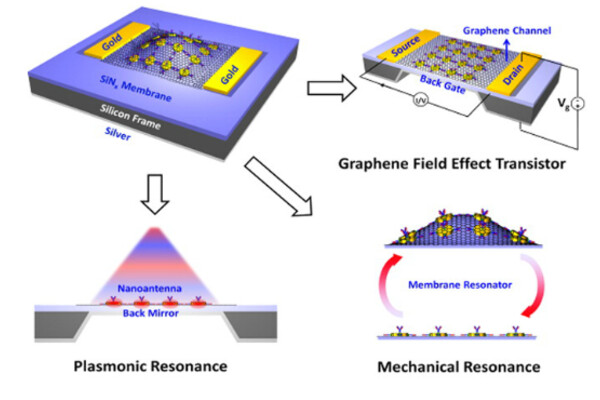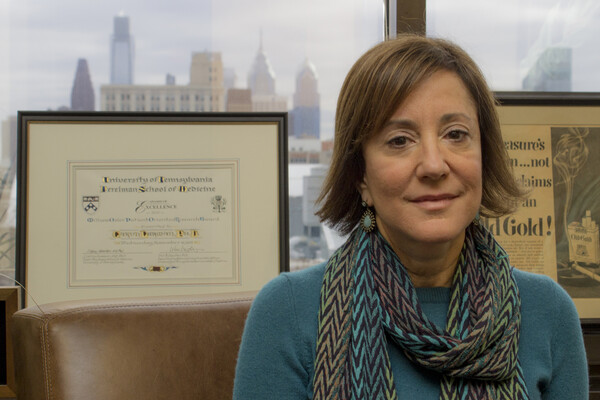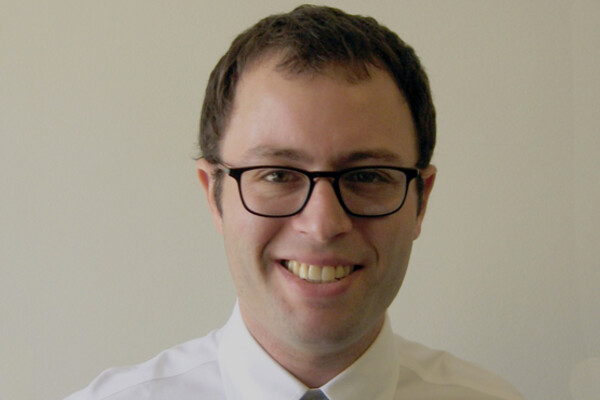5/18
Health Sciences
Penn Medicine Bioethicists Call for Return to Asylums for Long-Term Psychiatric Care
As the United States population has doubled since 1955, the number of inpatient psychiatric beds in the United States has been cut by nearly 95 percent to just 45,000, a wholly inadequate equation when considering that there are currently 10 million U.S. residents with serious mental illness.
Penn Research Shows Relationship Critical for How Cells Ingest Matter
To survive and fulfill their biological functions, cells need to take in material from their environment. In this process, proteins within the cell pull inward on its membrane, forming a pit that eventually encapsulates the material in a bubble called a vesicle.
A Baby Tooth Guided Penn Dental Medicine’s Songtao Shi to Stem Cell Insights
One of the keys to Songtao Shi’s productive career in research came from a seemingly humble item: his daughter’s first baby tooth.
Penn Medicine Study: Endobronchial Forceps Effective in Retrieval of Tip-Embedded Inferior Vena Cava (IVC) Filters
When retrievable inferior vena cava (IVC) filters were approved for use in the United States in 2003 to prevent pulmonary embolism among patients unable to receive the standard blood thinner treatment, many experts anticipated most of them would be removed when no longer needed and IVC filter complications would decrease.
Life at Higher Elevation Linked to Lower Incidence of Lung Cancer, Penn Study Suggests
Here’s another potential reason to live up in the mountains. Lung cancer rates in both smokers and non-smokers are lower in higher-elevation counties in the western part of the United States, suggesting that oxygen may promote the incidence of lung cancer, according to a new study co-authored by a student at the Perelman School of Medicine at the University of Pennsylvania.
Penn Engineers Develop Graphene-based Biosensor That Works in Three Ways at Once
One of nanotechnology’s greatest promises is interacting with the biological world the way our own cells do, but current biosensors must be tailor-made to detect the presence of one type of protein, the identity of which must be known in advance.
Patch or Pills? How Quickly Smokers Metabolize Nicotine May Point to Most Effective Way to Quit, Penn Study Finds
Nearly 70 percent of smokers who try to quit relapse within one week – daunting odds for people trying to kick the habit. Researchers have long theorized that some individuals may be genetically programmed to have an easier time than others, but with few clues about why, experts have been unable to guide smokers looking to quit toward a strategy – the nicotine patch versus prescription pills, for instance – with the best chance of success.
Penn Medicine Study: Web-based TAVR Marketing Found to Overstate Benefits, Understate Risks
Transcatheter aortic valve replacement, or TAVR, has been called one of the biggest advances in cardiac surgery in recent years. The procedure delivers a new, collapsible aortic valve through a catheter to the valve site within the heart - a repair that otherwise requires open heart surgery.
Wearable Tracking Devices Alone Won't Drive Health Behavior Change, According to Penn Researchers
New Year’s weight loss resolutions are in full swing, but despite all the hype about the latest wearable tracking devices, there’s little evidence that this technology alone can change behavior and improve health for those that need it most, according to a new online-first viewpoint piece in JAMA.
In the News
What’s going on with tranq?
Jeanmarie Perron of the Perelman School of Medicine says that the appearance and progression of skin ulcers and tissue loss on xylazine users is different than with other intravenous drugs.
FULL STORY →
It’s time to end the Medicare-Medicaid merry-go-round
In an opinion essay, Rachel M. Werner of the Leonard Davis Institute, Wharton School, and Perelman School of Medicine says that Medicare and Medicaid fail to integrate coverage and coordinate care across their two plans.
FULL STORY →
The quest for treatments to keep weight off after Ozempic
Researchers at Penn are conducting a co-authored study of the brains, fat and muscle cells, and eating patterns of people trying to maintain new body sizes.
FULL STORY →
Inside Penn’s transfer center
Penn Medicine’s transfer command center gets patients from affiliated hospitals and hospitals outside Philadelphia to specialized care that can save lives, with comments from CEO Kevin Mahoney.
FULL STORY →
Operating rooms are major sources of greenhouse gasses. Penn is eliminating a form of anesthesia that hangs in the air for more than a decade after use
Penn Medicine is phasing out the anesthesia desflurane at four of its six hospitals to eliminate harmful greenhouse gases, with remarks from Greg Evans.
FULL STORY →





